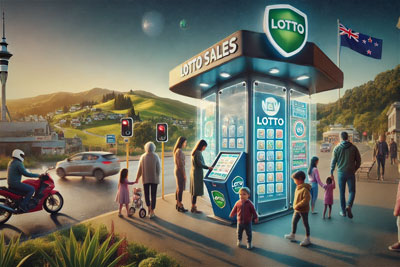
Andree Froude, Director of Advocacy and Public Health at the Problem Gambling Foundation, underscored the dangers of exposing minors to gambling, even indirectly. “It does tend to normalise gambling and make it seem to them that there’s no risk associated with it and that it’s just a normal thing to do,” she noted. Research has shown that early exposure to gambling significantly increases the likelihood of harmful gambling behaviors later in life.
Broader Context: Online Risks and Changing Gambling Patterns
The evolution of gambling in the digital era adds another layer of complexity. Young people, who are highly active on social media and gaming platforms, face growing exposure to gambling elements. A prime example is loot boxes in online games, where players spend real money for a chance to win virtual items. Froude described loot boxes as “very similar to gambling,” noting their role in normalizing the behavior among youth.
The rise in online gambling has amplified concerns. Available 24/7, online platforms make gambling more accessible than ever, blurring the lines between gaming and gambling. As Froude explained, “They’re on social media, they’re very tech-savvy, and all of these things are exposing them to gambling.”
Industry Support and Public Health Implications
Lotto New Zealand has expressed its support for the proposed changes. Will Hine, Head of Corporate Communications at Lotto, acknowledged the benefits of removing ambiguity around age restrictions. While the company does not have firm data on underage purchases, it believes such occurrences are minimal. Hine emphasized that Lotto already follows strict advertising protocols to avoid targeting minors.
The legislative reform aligns with public health goals, aiming to curtail early exposure to gambling and its associated risks. Advocates argue that parents also play a crucial role by fostering awareness and educating their children about gambling’s potential harms.
Enforcement and Lessons from Abroad
Implementing the new age restrictions will be critical to their success. Advocates stress the importance of clear guidelines and robust enforcement mechanisms to ensure compliance across both physical and digital sales channels.
New Zealand’s proposed legislation mirrors efforts in other countries where strict age restrictions have been effective in reducing youth gambling. By learning from these examples, policymakers aim to craft regulations that not only address immediate concerns but also foster long-term societal benefits.
As the legislation moves through Parliament, it signals New Zealand’s commitment to protecting younger generations from gambling’s potentially harmful influence.
Sources:
Gambling Normalised if Children Allowed to Buy Lotto Tickets, Harm Prevention Agency Says, rnz.co.nz, January 15, 2025.



